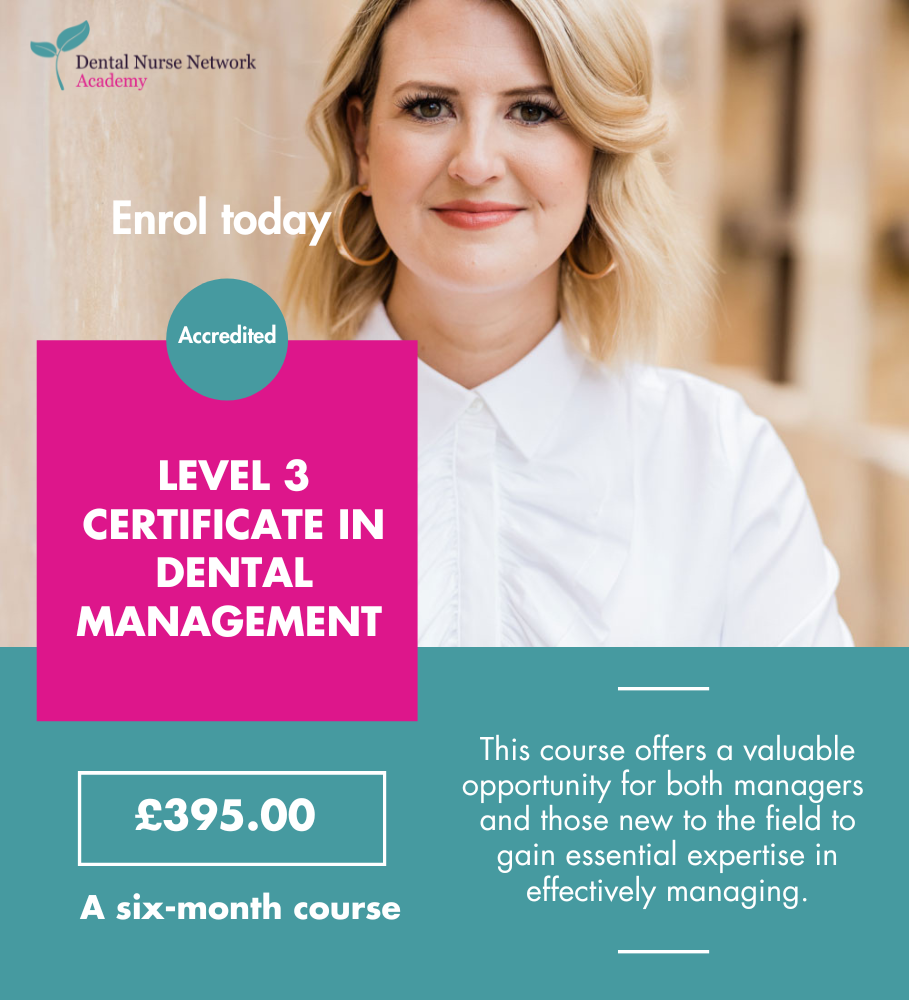 With dental practices re-openning, there is likely to be a huge backlog of patients who are going to have their dental appointments delayed and rescheduled over the coming weeks and months. It is now more important than ever to keep the public and our patients informed on how to maintain good oral hygiene.
With dental practices re-openning, there is likely to be a huge backlog of patients who are going to have their dental appointments delayed and rescheduled over the coming weeks and months. It is now more important than ever to keep the public and our patients informed on how to maintain good oral hygiene.
Adults
With more time being spent at home and stress levels at an all-time high for many adults, unhealthy habits such as smoking, alcohol consumption and an unhealthy diet can cause major oral health problems. This section will cover the main pieces of oral health advice and the best way to provide this advice whilst access to dental services is limited.
Fluoride and toothbrushing
Adults should be using a toothpaste with between 1350-1500ppm of fluoride. Most adult toothpastes should contain this. After toothbrushing adults, should spit the excess toothpaste out but avoid rinsing with water to maintain fluoride concentration on the teeth. A mouthwash can be used as an additional source of fluoride, but it should be alcohol-free and must be used at a separate time to brushing, as mouthwash contains much lower levels of fluoride than toothpaste.
Electric toothbrushes have been proven to be more effective at removing plaque than manual toothbrushes, so it is best to recommend these where possible. A manual toothbrush can still be effective with a good brushing technique; a small-headed sized brush with soft-medium textured bristles is perfect, and firm bristles should be avoided as they can cause recession of the gingiva and tooth abrasion if used too aggressively. Toothbrushes and toothbrush heads should be changed every three months, or sooner if a patient has been unwell. The bristles of a toothbrush should not splay outwards before the three-month mark; if they do, then the patient may be using a traumatic brushing technique.
Gum disease
Bleeding gums are often the first sign of gum disease. We are all likely to experience bleeding gums at some point in our life, and the problem is easily resolved with good cleaning at home and with no permanent damage to the teeth or supporting tissues. Gingivitis is the term given to the reversible inflammation of the gingivae. Whilst poor oral hygiene is the primary cause, other factors (such as hormonal changes) can worsen the condition. If gingivitis is left untreated, it can turn into periodontitis. It is important to remember that not everyone who suffers with gingivitis will end up with periodontitis; the causes of periodontitis are complex, and the way the body responds to plaque is a big factor in its development. Periodontitis results in permanent destruction of the surrounding tissues and is therefore much more of a concern for the patient and dental professionals. The severity of the condition will depend on the treatment that the patient requires, but oral hygiene instructions are always an absolute must as any treatment is going to fail without effective plaque control at home. Effective plaque control should include the following:
- Toothbrushing twice daily for at least two minutes.
- Interdental cleaning at least once a day.
- Use of a medicated mouthwash if it has been recommended – but this should be used at a separate time to brushing, and usually it is only meant to be used in the short term.
- Removal of plaque-retentive factors by a dental clinician and possible root surface debridement.
Whitening
Every week, there seem to be new products claiming to whiten teeth without the need for a dentist’s prescription. This is especially evident across social media. The ingredient required to change the colour of the teeth is hydrogen peroxide or carbamide peroxide. In the UK, this can only be included in over-the-counter products in tiny amounts, which make these products unlikely to cause a significant change in the shade of a tooth. Whitening toothpastes and products can be highly abrasive to make up for this and can result in permanent damage to the teeth. The bottom line is that only a dentist can perform (or prescribe to a dental hygienist and/or therapist to perform) safe, legal and effective teeth-whitening; anything else is either not regulated, not safe or will not have the desired effect.
Diet
Reducing the frequency and amount of sugar consumption is always a priority when it comes to providing diet advice to patients. However, with adults you may also need to consider foods which can cause other oral and general health concerns. The incidence of obesity and the number of adults diagnosed with type-2 diabetes is rising. These conditions can have long-term effects on oral health, so it will benefit patients in the long-term if we provide holistic diet advice. Diet advice should be based on the Eat Well plate. This is a clear visual representation of how much food from each food group should be consumed to create a healthy, well-balanced diet. Regular exercise is also an important part of staying healthy and reducing the risk of many chronic conditions.
Erosion is the wearing away of tooth structure caused by acids which are not bacterial in nature. Erosion is most commonly caused by the following:
- A highly acidic diet.
- Gastrointestinal conditions, e.g. acid reflux.
- Chronic morning sickness.
- Eating disorders causing frequent vomiting.
Some examples of foods and drinks which are highly acidic include: fruit, fruit juices, alcohol and diet soft drinks. Whilst erosion and dental caries are separate conditions, the advice we provide is very similar. Patients should limit the frequency of acidic foods and drinks and keep them to mealtimes only where possible; neutralising foods and drinks such as low fat cheese or milk can be consumed immediately afterwards to help raise the PH of the mouth. Alternatively, fluoride mouthwash and sugar-free chewing gum have similar effects. For anyone suffering with chronic vomiting, toothbrushing should be avoided for at least thirty minutes after vomiting. If patients present with health problems which are causing acid reflux, it may be necessary to signpost them to a healthcare professional for treatment. The biggest complaint from patients suffering with erosion is dentine sensitivity. Sensitive toothpastes will help to relieve the symptoms in the short term and restorative options are available in the long term.
Smoking and alcohol
Smoking – Smoking is incredibly damaging to oral health and general health. When it comes to oral health, smoking increases the risk of periodontal disease, tooth loss, dry mouth and oral cancer. Smokeless tobacco is also an oral cancer risk and therefore we should advise against it. It can be difficult providing smoking cessation advice, especially when someone has been smoking for a long time, as nicotine is highly addictive. The best thing to do is ask the patient if they have considered giving up and see how they respond. If it is appropriate, you can then go on to provide further advice on cutting down and giving up, and you can signpost to the relevant help services. If the patient is not ready to give up, there is little point in going any further, as this is likely to get a negative response from the patient.
Alcohol – No amount of alcohol is safe, but guidelines suggest that adults should have no more than 14 units of alcohol per week. It is important that these units are not all consumed in one go and that there are a few days in the week that are completely alcohol-free.
Providing oral health messages to adults
Adults are the perfect age group to provide preventative oral hygiene advice to via social media channels. Many dental professionals are using social media as a platform to connect with members of the public they would not normally see in their dental surgery. If this is something you would like to do, consider your target audience – who do you want your messages to be seen by? What age group? What oral health concerns will they have? National campaigns provide a great opportunity to post content – they include National Smile Month, Stoptober, Diabetes Awareness Week, and others. It is always best to provide general oral health advice and avoid providing any personalised dental advice to individuals; it could be seen as acting outside of your scope of practice if you end up discussing treatment options which would normally be discussed between a patient and a dentist.
Written by Melanie Pomphrett MSc, RDH, PTLLS

